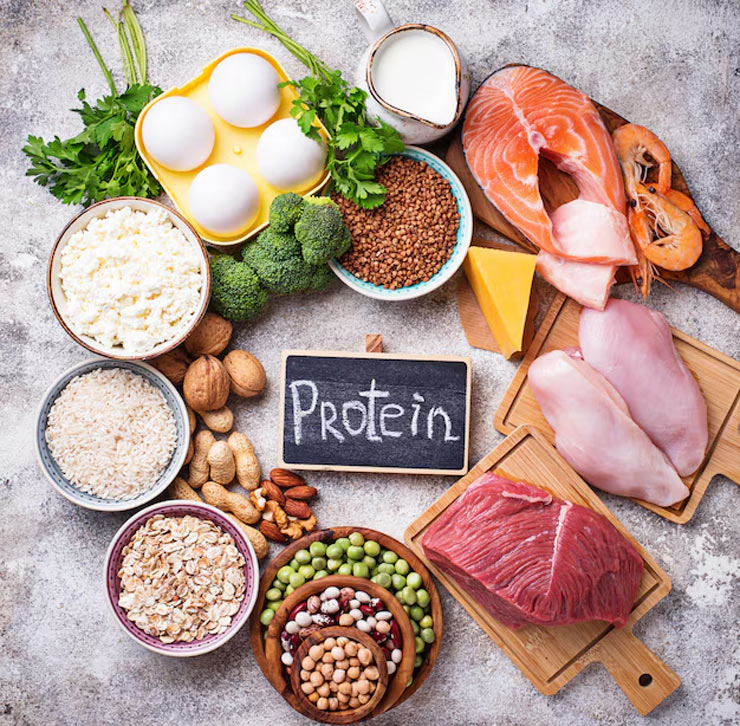
What a mother eats during pregnancy plays a significant role in how her baby's brain develops before and after birth. As the most energy-intensive organ in the body, the brain relies heavily on its supply of nutrients. Optimal foods can improve cognitive power, support memory formation, and build the foundation for a lifetime of brain health.
Table of Content:-
We spoke to Susmita, Clinical Nutritionist, Cloudnine Group of Hospitals, Bengaluru, who explained how diet affects a child's brain development.
Key Nutrients for Brain Development
A study published in the American Journal of Clinical Nutrition found that the quality of a woman's diet during pregnancy was linked to changes in the structure of her child's brain. This relationship helps to clarify how prenatal dietary habits can influence cognitive development in children.
1. Omega-3 Fatty Acids

"Omega-3 fatty acids, especially Docosahexaenoic Acid (DHA), are like brain fuel for your baby. They help build neurons, shape brain structure, and support essential functions like memory, learning, and even vision development. Getting enough DHA during pregnancy can set the stage for strong cognitive growth," added Susmita.
Sources: Fatty fish (salmon, sardines, mackerel), chia seeds, flaxseeds, walnuts, and fortified eggs.
2. Folic Acid
The production of neural tubes, which form the spine and the brain, requires folic acid. A deficiency can lead to neural tube defects, such as spina bifida.
Sources: Leafy greens (spinach, kale), legumes, citrus fruits, nuts, and fortified cereals.
3. Protein

"Protein helps create brain cells, and supports neurotransmitters, which allow your nerves to communicate). It also plays a key role in producing enzymes and hormones that keep your brain functioning smoothly," said Susmita.
Sources: Eggs, lean meats, poultry, beans, lentils, dairy, and soy products.
Also Read: What Should You Eat During Pregnancy For An Intelligent Baby?
4. Iron
"Iron helps transport oxygen to the gestating brain to enhance memory and attention span. A deficiency in this nutrient is associated with intellectual impairments when experienced during pregnancy," said Susmita.
Sources: Red meat, spinach, lentils, tofu, quinoa, and iron-fortified cereals.
5. Choline

Choline helps the development of the hippocampus, a region of the brain that handles memory and learning. It also helps neurotransmitter function.
Sources: Eggs, chicken, fish, dairy, soybeans, and peanuts.
6. Iodine
Iodine is needed for normal thyroid function, which has a direct effect on brain development and metabolism. Deficiency can result in lower IQ levels in children.
Sources: Iodised salt, seaweed, milk, eggs, and fish.
7. Antioxidants (Vitamin C, E, Beta-Carotene)
Antioxidants safeguard the baby's developing brain against oxidative stress and inflammation, promoting adequate neural connectivity.
Sources: Berries, oranges, carrots, nuts, seeds, and dark chocolate.
8. Zinc
"Zinc enables neurons to grow and function and improves synaptic transmission. It also supports immune function and cell growth," said Susmita.
Sources: Pumpkin seeds, chickpeas, nuts, lean meats, and whole grains.
Also Read: Trimester By Trimester: Expert Explains How To Plan Balanced Meals For A Healthy Pregnancy
Foods to Avoid for Proper Brain Development
While it is essential to incorporate nutrient-dense foods, avoiding harmful substances is also vital.

- Processed and Junk Food: Consumption of high sugar and trans-fats can harm brain development and increase the risk of behavioural problems.
- Excessive Caffeine: Consuming too much caffeine can limit blood flow to the placenta, impacting oxygen and nutrient delivery.
- Alcohol: This can result in foetal alcohol syndrome, developmental delay, and mental impairment.
- High-Mercury Fish: Some fish, such as sharks, swordfish, and king mackerel have high levels of mercury, which may damage the baby's nervous system.
Role of Breastfeeding in Brain Development
"After birth, breastfeeding also sustains brain development. Breast milk is rich in DHA, choline, and antibodies, which support cognitive function and immunity. Breastfed infants have a higher IQ score and improved memory retention," explained Susmita.
Healthy Meal Plan for Brain Development
Here's a sample meal plan to ensure you get all the necessary nutrients:
- Breakfast: Scrambled eggs with spinach and whole-grain toast, fresh orange juice
- Lunch: Grilled salmon with quinoa and roasted carrots
- Snack: Greek yoghurt with berries and walnuts
- Dinner: Steamed broccoli and stir-fried tofu with brown rice
- Hydration: Lots of water, herbal teas, and fresh fruit smoothies
[Disclaimer: This article contains information provided by an expert and is for informational purposes only. Hence, we advise you to consult your professional if you are dealing with any health issue to avoid complications.]
Also watch this video
How we keep this article up to date:
We work with experts and keep a close eye on the latest in health and wellness. Whenever there is a new research or helpful information, we update our articles with accurate and useful advice.
Current Version